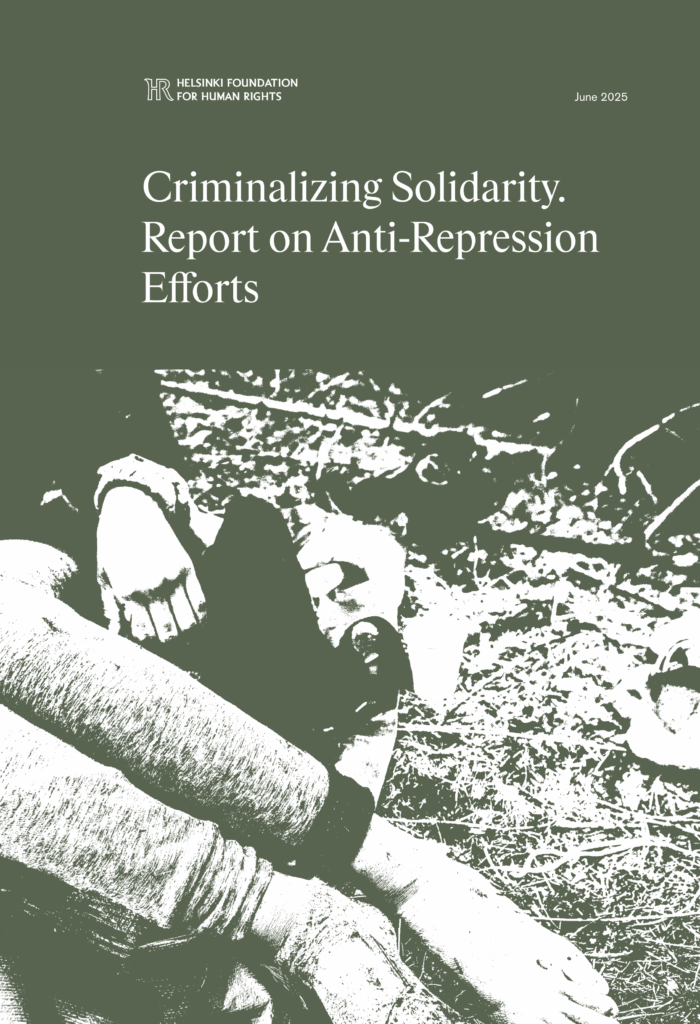The Helsinki Foundation for Human Rights, in cooperation with the Szpila Collective, presents the latest report on the criminalisation of humanitarian aid. The report documents:
- actions of the justice system against activists and volunteers,
- testimonies of Podlasie residents who have been facing the consequences of the humanitarian crisis for years,
- legal and social analyses prepared by a team of experts.
This publication sums up an important period – the years 2021–2024 – and highlights the consequences that systemic criminalisation of solidarity has for society.
The authors describe the mechanisms of criminalising migration and the repression directed at those who provide support to migrants at the Polish-Belarusian border since 2021. By analysing both the local context and the changing legal framework within the European Union, the report shows how state actions – including the introduction of new laws, interventions by security forces, and criminal proceedings – contribute to the criminalisation of solidarity.
The report opens with a discussion of the foundations of criminalising migration and humanitarian assistance in the context of the so-called Facilitation Directive, which may intensify repression at the EU’s borders. Subsequent chapters present the jurisprudence of Polish courts, specific cases of repression against people assisting migrants, as well as the work of anti-repression groups. The report concludes with an analysis of the social consequences of these processes, showing their multidimensional nature — legal, media-related, economic, and political.

To download the report in PDF click the cover or HERE